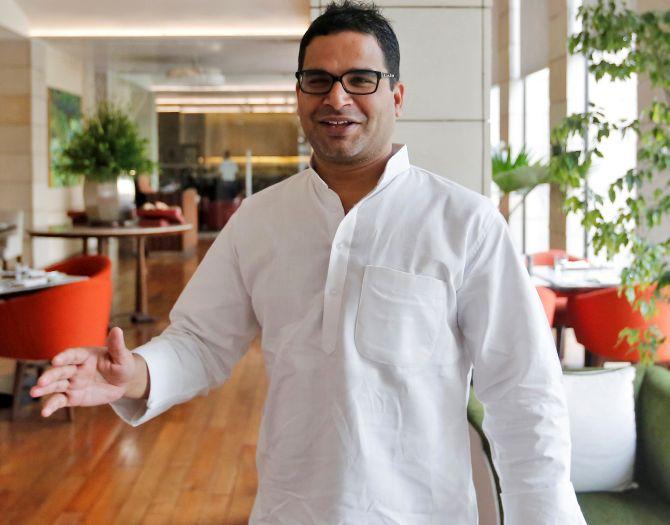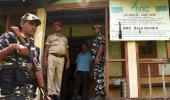
Janata Dal-United national vice president Prashant Kishor on Thursday scoffed at the Centre's refrain that there have been no deliberations so far on a country-wide National Register for Citizens (NRC), calling it a 'tactical retreat'.
The poll-strategist-turned politician, whose party is an alliance partner of the Bharatiya Janata Party, asserted that the change in stance was prompted by country-wide agitations against the new citizenship law and the proposed NRC.
'The claim of 'abhi to NRC ki koi charcha hi nahin hui hai' is nothing but a tactical retreat in the face of nationwide protest against #CAA_NRC. It is a pause and not the full stop.
'[The] Govt could wait till SC judgement on CAA. A favourable court order and the whole process will be back,' Kishor tweeted.
Speculation that CAA will be followed by NRC had intensified in the wake of Union Home Minister Amit Shah's remark during a debate on the Citizenship (Amendment) Bill in Parliament that 'NRC aane wala hai' (NRC is on the way).
Kishor, who had disapproved of his party voting in favor of the Bill, has been emphatic that the Act, which seeks to grant citizenship to non-Muslim refugees from adjoining Islamic countries, could spell trouble in combination with the NRC.
Bihar Chief Minister Nitish Kumar, who is also the JD-U president, faced with a possible diminution of his popularity among Muslims as a result of his party voting in favor of the Bill, last week asserted that NRC will not be implemented in the state, the first National Democratic Alliance CM to say so.
Kishor, on his part, has been demanding an 'official announcement' from Congress president Sonia Gandhi that NRC will not be implemented in the states ruled by her party, holding that statements to the effect from respective chief ministers would not suffice.
Meanwhile, BJP leaders have been at pains to explain that anxiety over the NRC was premature after Prime Minister Narendra Modi wondered at a rally in New Delhi on Sunday as to why people were taking to the streets against a measure that was yet to be taken up for discussion in Parliament or the Union cabinet.











 © 2025
© 2025